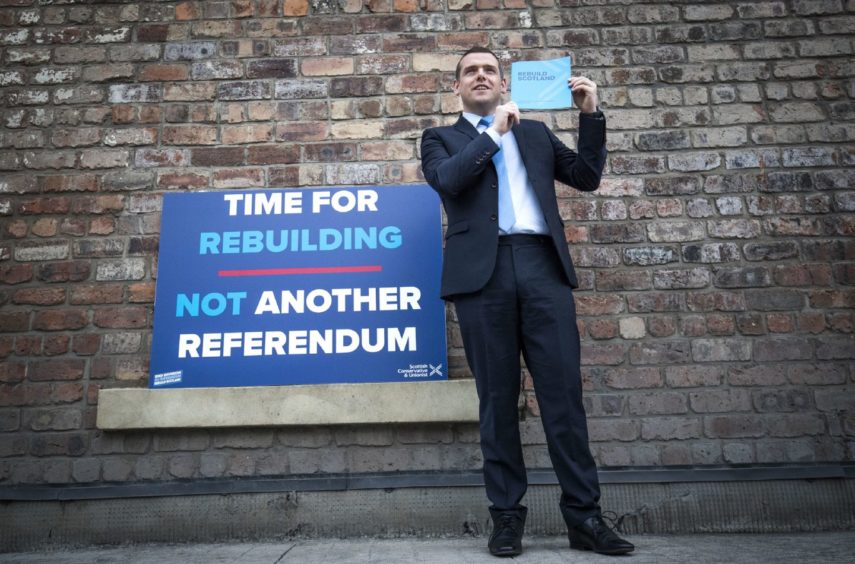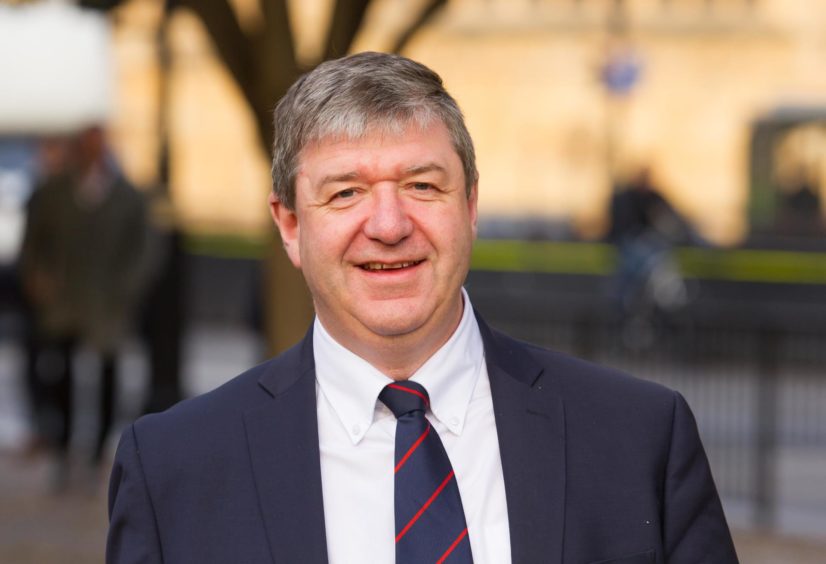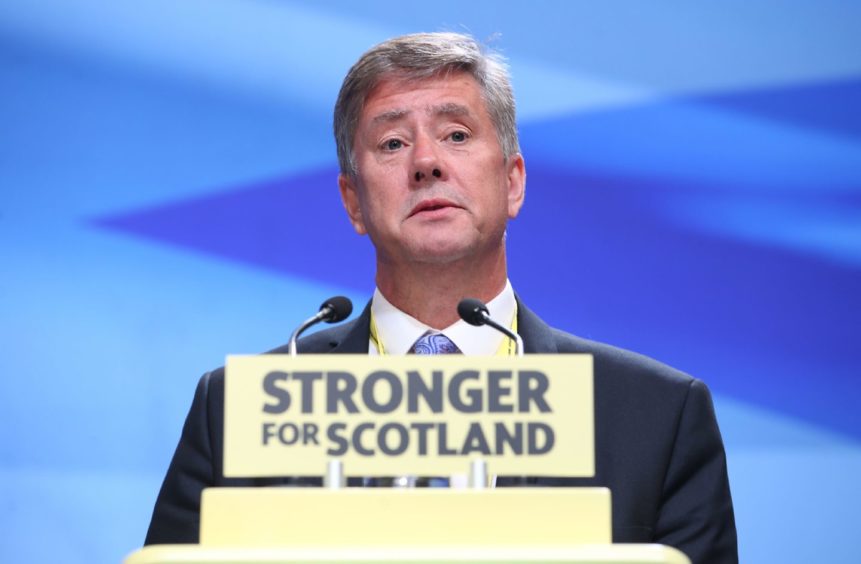A manifesto plan by the Scottish Tories to cut income tax for Scotland’s highest earners would likely force ministers to slice budgets for other services, the Institute for Fiscal Studies has warned.
Scottish Conservative leader Douglas Ross was accused of engineering a “Ross Rebate” for himself and other better-off Scots and taking the country back to “Dickensian policies” as the party unveiled its election manifesto on Monday.
Plans outlined by the Tories would see the higher rate threshold for income tax rise from £43,663 to £50,270 when Scotland “can afford to do so”, while the current starter rate for low earners would remain the same.
Under the move, the Conservative leader and all MSPs – who earn £64,470 a year -would be given a tax cut of at least £1,321.
Parity
Mr Ross said this is because he wants “parity” for the 1.1 million income tax payers in Scotland who currently pay more than people in the same jobs across the rest of the UK, and vowed he would personally forego any cut to his own tax bill.
A costings supplement issued by the Conservatives alongside their manifesto failed to put a price on the policy but the IFS has warned the party’s ambition to cut income tax “looks unlikely to be realised without cuts to at least some services”.
Its researchers found the Tories’ manifesto “reflects the seeming consensus in Scottish politics on a range of issues” including increases to carers allowance, doubling the Scottish child payment and universal free school meals for primary school-aged children.

However, they noted the extra £2 billion pledged by the Conservatives for the NHS by 2025-26 would be insufficient to deliver on the party’s ‘double lock’ promise, and predicted that without a significant increase in UK Government funding, the ambition to cut income tax “may have to remain only an ambition”.
The IFS stated: “It would cost around £400 million a year, and the Conservatives say they will only do this ‘when we can afford to do so’ and ‘in the event that tax revenue outstrips public spending demands’.
“They would seek to do it ‘by the end of the parliament’, but it is hard to see how this could be achieved given existing commitments – on the NHS, schools, local government and other taxes – without cuts to at least some areas of public spending.”
Speaking to reporters after Monday’s manifesto launch, Mr Ross was asked why there are tax cuts for the better off in his plans but none for the lowest earners.
He said: “This is focusing on 1.1 million Scots who are taxed more for doing the exact same job in other parts of the United Kingdom. It’s our teachers and police officers.
“We said we would keep the starter rate, to protect those on low incomes.
“But, over the course of the parliament, if we can get our economy back up and running again, we would seek to return parity in the system because the SNP have made Scotland the highest-taxed part of the United Kingdom.”
The wrong priority
Mr Ross said he would look to fulfil the plan when tax revenue is higher than public spending but Scottish Lib Dem campaign chair Alistair Carmichael said it is the “wrong priority for Scottish Conservative MSPs to give a tax cut to each other”.
“Douglas Ross is promoting a Ross Rebate for himself at a time when we know the health service is struggling to cope with the crisis,” Mr Carmichael said.
“The Conservatives have offered NHS workers a paltry 1% pay rise but Douglas Ross will get an increase of double that just by his own tax proposal.
“This doesn’t even include the additional salary he will get for being both an MSP, an MP and a referee.
“Tax cuts for high earners should not be the priority as we put recovery first.”
SNP depute leader Keith Brown, whose own party has proposed a five-year income tax freeze, accused the Conservatives of being “completely out of touch, planning tax cuts for the rich and austerity for everyone else”.
He said: “It is shameful that rather than taking on the millionaires that fund their party, the Tories are instead ruthlessly focused on attacking those on lower incomes – giving their millionaire chums a tax cut, which Douglas Ross himself would benefit from, while those on low wages get nothing.
“The Tories seem determined to take Scotland back in time with their Dickensian policies, offering more money to the wealthiest in society while cutting the NHS budget at the same time.”
A Scottish Conservative spokesman said: “Our fully costed manifesto is a positive policy programme that is focused on rebuilding Scotland.
“The IFS have said we are the party that has announced the most generous funding package for our NHS.
“We will also recruit 3,000 teachers for our classrooms and support all parents with young children with an expansion of childcare.”



